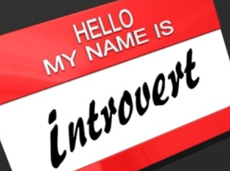
Executive phone interviews are very different from an in-person or video interview and pose special challenges. When the job position you want is on the line, you need to know how to make the right impression.
Employment interviews take place in person, via webcam, and on the telephone. The big difference for a telephone interview is the lack of your ability to see, or telegraph, important nonverbal cues.
To some, a telephone interview is a comfortable alternative to the exposure of a video interview, or the intensity of an in-person interview. Interestingly, a survey by Software Advice found applicants who had experienced a video interview preferred video to a phone interview. A big reason for the preference is the ability to share nonverbal messaging.
When you have a phone interview for an executive position, how can you use that format to your advantage?
From the top—techniques to crush the executive phone interview
A telephone interview usually means you are being pre-screened. As gatekeepers, recruiters, a hiring manager, or search committee are looking for specific abilities and traits. If you get through the phone interview, you will likely progress to a video, or in-person interview.
With that in mind, your phone interview could be the most difficult dialogue you face in the application process. You must be able to communicate your brand through voice alone—with the aid of your resume or CV.
To ace the interview you have to manage what you say—and what you do. We’ll look at both.
Keep these staging tips in mind when you are scheduled for an executive phone interview:
1. Schedule the interview:
While not likely, it is possible you could get a cold call from a company, or recruiter, where you expressed interest. While the request could be for a few minutes of your time, express appreciation for the call, and ask to schedule the interview on a mutually acceptable date and time. Even if later in the same day, rescheduling gives you time to collect thoughts and materials.
2. Dress the part:
While it is tempting to dress down for a phone interview, do yourself a favor and play the part. A downside to a telephone interview is perceived informality. Dressing for the interview, or at least straightening up, impacts how you present yourself. Project professionalism. Other physical points include taking a brisk walk prior to the call, standing for part of the time, and speak and smile as if you were being seen in person. The physical act of smiling lightens your mood and increases your confidence. Do not multi-task during a phone interview, and keep a glass of water close by.
3. Quiet space:
Be sure to locate a quiet office or other location in which to conduct the telephone interview. Ensure it is clear of interruption, noise, children, or pets.
4. Mind the phone line:
To avoid dropped calls or poor connections, try to use a landline. Otherwise, be sure your phone is charged and consider using a headset to free your hands. Why? Because you can more easily review your materials and gesture if that is your habit. Create an environment for an active, participatory interview on all levels.
What you say—and how you say it—is critical in a telephone interview. Consider these suggestions for engaging your telephone interviewer:
5. Be prepared:
With an executive position on the line, do not stint on preparation. Undertake an in-depth exploration of the organization, and the history of the job you seek. Be sure you understand the brand, its culture, history, challenges, financial performance, and interesting sidelights, such as key sponsorships. Research salary levels of the position, in case you are asked what salary you seek.
6. Crib notes:
While lack of visual context is a problem—it can also work to your advantage. Keep your resume, job description, and a summary sheet of achievements nearby. Make notes of dollars saved, acquisitions made, and other relevant financial or production numbers of worth. Write quick answers to common interview questions, and be sure to include details of action taken in the face of failure or difficulty.
7. Know yourself:
Be practiced and comfortable discussing achievements and the value you bring to the C-suite. Do not expect lengthy experience to get you to the next interview level—be ready to explain and discuss how you provide a competitive advantage.
8. Delivery:
At the outset of the interview, give the interviewer a full chance to speak. Respond throughout the call at a steady, if slow, pace. Vary the tone of your voice to express interest, curiosity, and confidence. Try not to speak excitedly because it betrays nerves and is not appropriate for a professional interview. If a difficult question comes your way, try to restate it back to the interviewer and ask if that is what they meant. Your job is to engage the interviewer in a pleasant and informative query. When the time is right, be sure to ask your own thoughtful questions about the company, and the position.
9. Name-dropping:
If you know connections within the company that could help you, mention the association during the interview, if appropriate. When you have worked with industry notables, or recruited top talent for your work teams, mention names if there is a natural opening.
10. In the end:
As the phone interview draws to a close, be sure to thank your interviewer, express interest in the job, and ask what the next step in the process might be. Avoid compensation discussions unless asked, and then use figures that are competitive in the industry. Follow the phone interview with a thank you email, or letter.
An executive phone interview is challenging. Be prepared, and be on point, in order to position yourself to land the offer.
Written by Lisa Rangel, Executive Resume Writer













